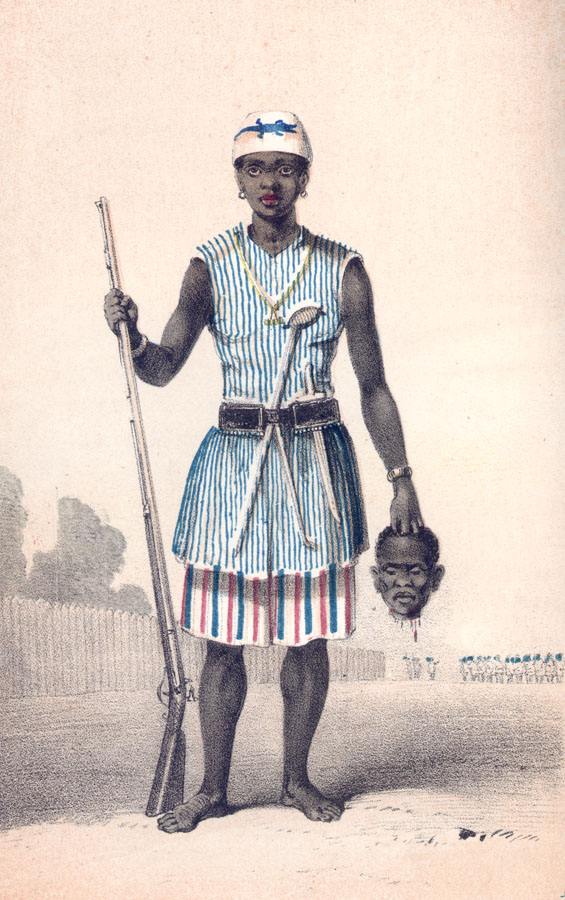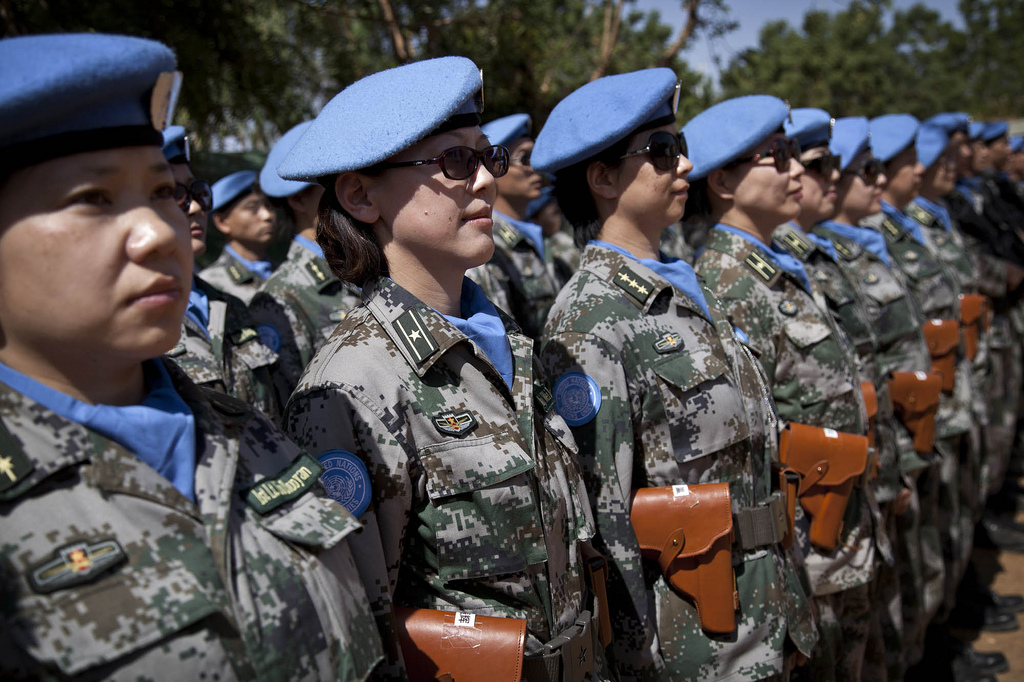Sixth in a series for 16 Days of Activism Against Gender-based Violence. Photo: UN Peace Keeping.

Seh-Dong-Hong-Beh, leader of the Dahomey women’s regiment, drawn by Frederick Forbes, 1851 – Public Domain.
Today, November 30, is Benin National Day. What does that have to do with Women, Peace and Security? Well – Benin’s history features the rather famous all-female military regiment of the Kingdom of Dahomey (now present-day Benin). These women warriors fought in wars with the French. The French eventually prevailed, and disbanded the regiment.
Rape as a weapon: Fast-forward to the 4th World Conference for Women in Beijing in 1995, held just at the end of the Bosnian war – a conflict that brought rape as a strategic weapon of war to television screens around the world. This kind of hideous war crime had happened since antiquity, but in the 20th century was carried out on a massive scale, including the “comfort women” sex slaves of the Japanese army in World War II, and the rape of hundreds of thousands of Bangladeshi women by Pakistani troops during the Bangladesh war for independence.
War disproportionately affects women. In today’s conflicts, 70% of casualties are civilians, many are women and children. Many representatives from organizations that now make up the Movement for Community Led Development attended the Beijing World Conference on Women, and met women who were survivors of the mass rapes in Bosnia. The effects of war on women became one of the 12 planks of the Beijing Platform for Action,
Women at the forefront in conflict-affected communities: Sarah Taylor of the International Peace Institute recently wrote: “In many of the world’s most intransigent conflicts, women are mobilized to address the most urgent issues in their communities. Syrian women are negotiating humanitarian relief at the local level and are in the top ranks of the Syrian opposition negotiating team. Women in Central African Republic mediate between local armed groups… In Myanmar, Rohingya women are documenting the crimes carried about by the Tatmadaw [Myanmar armed forces] and women are negotiating ceasefires in Kachin State.” Yet, “women are also overwhelmingly excluded from efforts to prevent, resolve, and rebuild from complex crises.”
Women, Peace and Security: Just five years after Beijing, the UN Security Council adopted Resolution 1325, which is now the battle cry for women’s leadership on this issue. It reaffirms “the important role of women in the prevention and resolution of conflicts and in peace-building, and stressing the importance of their equal participation and full involvement in all efforts for the maintenance and promotion of peace and security, and the need to increase their role in decision-making with regard to conflict prevention and resolution.” To date 79 countries have National Action Plans for implementing the resolution.
The time is now to step up action: Sarah Taylor concludes: “one of the boldest steps the global community can make is to truly upend how it approaches peace: to move away from ideas of merely including women in broken processes, and to move towards creating necessary systemic changes, built on and unleashing women’s leadership.” Each of us has a role – in every context – to ensure that women are in full and at least equal leadership roles in all decisions that affect people’s lives.


